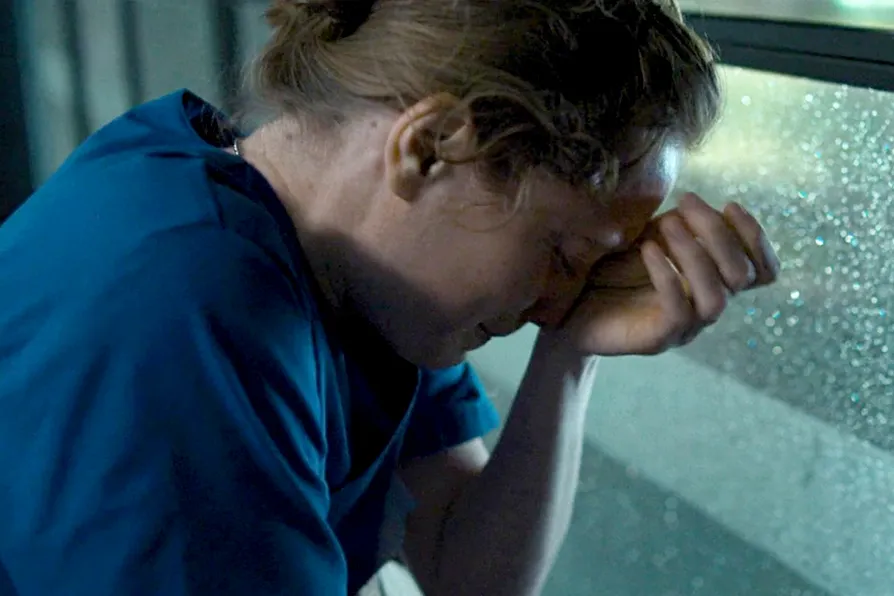JOHN GREEN, MARIA DUARTE and ANGUS REID review Fukushima: A Nuclear Nightmare, Man on the Run, If I Had Legs I’d Kick You, and Cold Storage
ANGUS REID is bowled over by a cinematic masterpiece that examines the labour of nursing in forensic, dramatic detail

 INTERNALISING THE PAIN OF OTHERS: Leonie Benesch in Late Shift [Pic: IMDb]
INTERNALISING THE PAIN OF OTHERS: Leonie Benesch in Late Shift [Pic: IMDb]
Late Shift (12A)
Directed by Petra Volpe
★★★★★
WHEN there is a shortage of nursing staff and wages are inadequate, how should the virtues of this stressful, vocational and utterly necessary profession be advocated?
You might make a documentary or a training film, but how much more powerful it is to bring the art of cinema to the study of a single night shift? I have never seen the multiple demands of this kind of labour rendered with more compassion and drama than in the minute-by-minute intensity of Petra Volpe’s outstanding feature.
There are, of course, many hospital dramas on TV, but is there one whose focus is so exclusively on the emotional demands and thought process of the nurse? This everywoman is played with a combination of vulnerability and automatic professionalism in the superbly nuanced performance of Leonie Benesch.
Already short staffed on the ward, she must attend to the routine needs of each patient and make the flow of demands and operations run smoothly. It’s an invisible role that requires both instant medical competence and — this is the revelation — instant empathy: the capacity to deliver the true medicine of human understanding. Each patient is in a different form of distress and very rapidly the tasks and demands pile up and overlap.
It is a testament to Volpe’s vision as writer/director that we never doubt the reality of the situation as Floria’s stress levels gradually increase and, with a certain sense of dread, like in any good drama, you can’t tell what’s coming next.
But it’s the utter realism about the job that is so striking. The nurse is there to make it all work, but the system she is operating inside is divided by class (one patient has private insurance and a sickening entitlement) by race and language (the relatives of another are all in Burkina Faso) by affliction (how to reassure those suffering anxiety and dementia?) and by economics. While she must work anti-social hours, in the background is Floria’s own broken relationship and estranged child.
But there is also a brilliantly understated and convincing undercurrent of female solidarity that crosses over between the different characters and rallies to support our increasingly harassed heroine.
Exquisitely shot in long takes that gather the many micro-dramas that await in every corner of the hospital corridor, this is a masterpiece: cinema at the service of society, urgent, moral, human and gripping from start to finish.
With nurses needing to take industrial action in Britain — again! — this is an essential watch for Morning Star readers. Unmissable.
In cinemas August 1.

ANDY HEDGECOCK, MARIA DUARTE and ANGUS REID review The Six Billion Dollar Man, Avatar: Fire and Ash, Goodbye June, and Super Elfkins

MARIA DUARTE and ANGUS REID review Friendship, Four Letters of Love, Tin Soldier and The Ballad of Suzanne Cesaire

MICHAL BONCZA, MARIA DUARTE and ANGUS REID review The Other Way Around, Modi: Three Days On The Wing Of Madness, Watch The Skies, and Superman

The Star's critics ANGUS REID, MICHAL BONCZA and MARIA DUARTE review Hot Milk, An Ordinary Case, Heads Of State, and Jurassic World Rebirth









